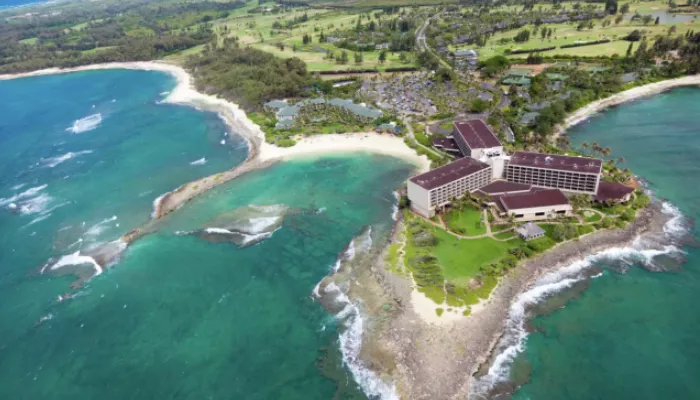A new luxury development on Oahu’s North Shore has sparked outrage among local residents, with critics accusing developers of ignoring the area’s cultural heritage and contributing to the ongoing gentrification of Hawaii.
The “North Shore Club” at Turtle Bay, an ultra-luxury project by the Utah-based Areté Collective, has become the latest flashpoint in the battle over the island’s rapidly rising cost of living. The development, which boasts 20 beachfront residences with prices starting at $7.5 million, has been labeled a “carefully considered ode to Hawaiian culture, conservation, and high design.” However, many locals view the project as yet another example of luxury real estate encroaching on a community that has long struggled with displacement.
Hawaiian culture, many argue, is being commodified at the expense of the island’s native population, who are being priced out of their own land. According to the 2020 Census, more than half of Hawaii’s Native Hawaiian population now lives outside the state, a stark contrast to the 47% who still reside on the islands. The North Shore Club’s high-end offerings are expected to exacerbate the affordable housing crisis, further driving up local property values and deepening the divide between the wealthy and local residents.
Rebecca Buchan, co-founder of Areté Collective, defended the project, saying, “The North Shore Club at Turtle Bay embodies our commitment to environmental preservation and honoring the rich heritage of Hawai’i.” Buchan, who resides in Salt Lake City, added, “As one of the last new residential opportunities on O’ahu’s iconic North Shore, we take our responsibility as stewards of this land and its people to heart.” Critics, however, view such statements as hypocritical, arguing that the project’s true focus is on profit rather than cultural preservation.
The controversy surrounding the North Shore Club is not new. Since the 1980s, local opposition to development on the North Shore has been fierce. The slogan “Keep the Country, Country” was coined during the first battle over hotel expansion in 1985, and it continues to resonate today. Over the years, the area has seen a rise in luxury hotels and vacation properties, including the Ritz-Carlton resort, where room rates start at $1,000 per night. With so many luxury options already available on the island, critics argue that the North Shore Club offers nothing of value to the community, except for further gentrification.
The Areté Collective’s sponsorship of the 2023 Da Hui Backdoor Shootout has raised eyebrows, with some speculating that it was a strategic move to buy local favor and suppress opposition. Additionally, rumors have circulated that a prominent local surfer may open a surf school as part of the development. Such moves have led to accusations that developers are attempting to silence the most vocal critics of the project.
Moana Jones Wong, known as the “Queen of Pipeline,” is one of the leaders of a new generation of Hawaiian activists fighting to preserve the culture and environment of the islands. Wong and her fellow activists have already begun taking action, despite a lack of official permits for their efforts. This has led to tensions with the developers, who have threatened to sue opposition movements, adding further fuel to the fire.
While some affordable units in the development are being touted as a compromise, with prices ranging from $500k to $800k, many locals remain unconvinced. The 1986 Unilateral Agreement, which mandates that developers provide affordable housing, has sparked controversy, especially given that Areté Collective has suggested the affordable units could be built offsite, with no clear details on pricing, location, or the criteria for selecting residents.
In addition to concerns over affordability, environmental issues are a key part of the opposition. The proposed development threatens endangered species such as the Hawaiian Monk Seal and Albatross. Locals have also raised alarms about the project’s potential impact on traffic congestion, sea level rise, and coastal erosion.
As tensions rise, it’s clear that the North Shore Club has become a symbol of the broader struggles facing Hawaii. While developers tout their commitment to environmental and cultural stewardship, many in the local community see the project as a threat to the very identity of the islands. With gentrification accelerating and the cost of living soaring, the battle over the future of the North Shore is far from over.

